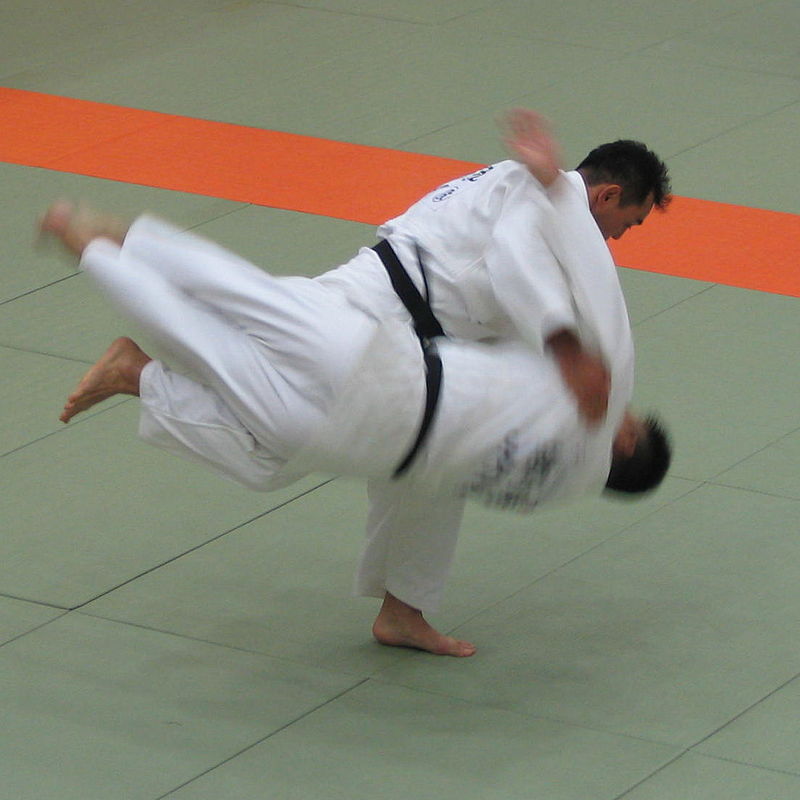- Self-Defense Skills: Judo equips you with a variety of self-defense techniques. It teaches you how to use an opponent’s strength and weight against them, which can be particularly beneficial in real-life threatening situations.
- Physical Fitness: Regular Judo training improves strength, flexibility, endurance, and balance. The sport involves the entire body, providing an intense workout that can enhance overall physical fitness.
- Confidence Building: As you learn new techniques and earn higher belt rankings in Judo, your self-confidence grows. This newfound confidence can carry over into other aspects of your life.
- Improved Coordination: Judo demands precise movements and timing. Regular practice enhances your coordination, reaction speed, and overall body awareness.
- Stress Relief: Judo can be an effective outlet for releasing stress and tension. The physical exertion and focus required during practice can help clear the mind, promoting relaxation and mental well-being.
- Discipline and Respect: Respect for instructors, opponents, and the sport itself are fundamental elements of Judo. This discipline can translate to a general respect for others and self in daily life.
- Social Interaction: Judo is often practiced in a class setting, providing opportunities for social interaction. You can build friendships with your peers while learning from one another.
- Promotes a Healthy Lifestyle: Regular exercise through Judo encourages a healthier lifestyle. It can motivate you to make better dietary choices and maintain a regular sleep schedule, both important for athletic performance and recovery.
- Enhanced Focus and Concentration: Judo requires significant mental concentration, as you need to anticipate and respond to your opponent’s movements swiftly. This concentration can improve mental clarity in other aspects of life as well.
- Character Development: Judo not only develops physical strength but also cultivates character. Its principle of mutual welfare and benefit teaches students the importance of helping and supporting each other, fostering a sense of empathy and community.
10 Fun Facts About Judo
- Origins: Judo originated in Japan and was created in 1882 by Jigoro Kano as a physical, mental, and moral pedagogy.
- Meaning: The word “Judo” means “the gentle way” in Japanese, reflecting its emphasis on using an opponent’s force against them rather than relying on pure strength.
- Olympic Sport: Judo became an official Olympic sport in 1964 during the Tokyo Summer Games.
- White and Black: In Judo, beginners wear white belts, and the highest level practitioners wear black belts. There are additional colors and degrees of black belts for very high levels of achievement.
- Techniques: Judo techniques are divided into three categories: throwing techniques (Nage-Waza), groundwork techniques (Katame-Waza), and striking techniques (Atemi-Waza).
- Principles: One of the main principles of Judo is “Maximum Efficiency, Minimum Effort”, which means using the least amount of physical strength necessary to throw an opponent.
- World Judo Day: World Judo Day is celebrated on October 28th, which is the birthday of Jigoro Kano, the founder of Judo.
- First Female Judoka: The first woman to practice Judo was Kano’s wife, Sumako. Women’s Judo became an Olympic sport in 1992.
- Martial Art and Sport: Judo is both a martial art, which can be used for self-defense, and a sport with strict rules to ensure the safety of the participants.
- Global Popularity: Judo is practiced by millions of people around the world, both competitively and recreationally, making it one of the most popular martial arts.
Facebook Comments


































